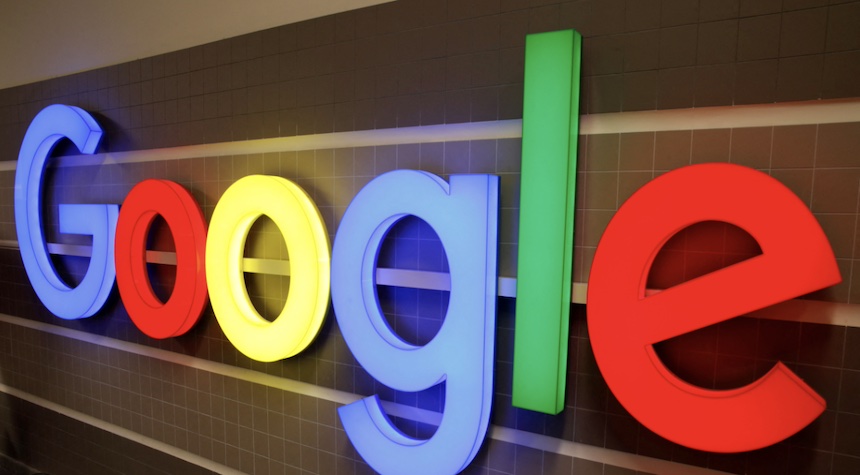Artificial intelligence is advancing and a new company may soon dethrone the long-time king of internet searching.
Jon Schweppe of the American Principles Project stated that AI may eventually replace search. This is especially true if AI learns what the user wants and can deliver more relevant answers. However, he cautioned that there are many unknowns about the technology. We are still in the early stages of the AI Revolution and it is not yet clear how these companies will monetize the technology.
According to the New York Times, the comments were made as a new search platform called Perplexity quickly became one of the most talked-about platforms in the technology world, thanks to its AI-driven search feature that rivals, or even beats, traditional search platforms like Google and Bing.
In recent months, the company has seen a surge in investment. It was founded by former OpenAI and Meta employees who worked on AI research. Amazon founder Jeff Bezos was also an early investor in Google. He is one of the investors in the round which saw the company raise $74 million. Its total value now stands at $520 million.
The report states that while the landing page interface is similar to Google’s, the user experience on the page is different and sometimes better than the traditional search. Perplexity’s “Copilot” was one of the features noted. It asks clarifying questions to help narrow down a search rather than presenting pages of results.

Jake Denton is a Research Associate with the Heritage Foundation’s Tech Policy Center. He said that problems with the current search engines may allow companies like Perplexity to gain the lead in the industry. Denton said that one of the issues was the desire to filter and censor search results. This would deny users what they were looking for.
Denton explained that startups such as Perplexity take a different approach, giving users unfiltered results and avoiding the usual Big Tech manipulation. “Perplexity outperforms Google’s browser in many areas because it is focused on accuracy and quality rather than top-down censorship of information.”
Not everyone believes that technology can truly take over the search.
Christopher Alexander, Chief Analytics Officer at Pioneer Development Group, stated that “AI won’t replace search engines but will become the interface you use with them.” What AI agents can effectively do is to make the unnatural search for information that we conduct by entering keywords and the process of researching more human. Natural Language Processing allows for a conversation between a user and the system.
Phil Siegel, founder of the Center for Advanced Preparedness and Threat Response Simulation, said AI can replace some of today’s searches, especially when the user doesn’t know what they want to search for. Siegel, however, questioned whether AI-driven searches could be profitable and questioned their business model.
The question is what business model will be used for open-ended search. If you search for a movie quotation, the engine will serve up movies or theaters that are similar to the one you searched for. Siegel added that the engine could charge for this.

Siegel said that AI-driven platforms for search may end up being more of a niche product. People will pay to use this service, and the platform will make money.
The New York Times reports that Perplexity is ahead of the game in terms of monetizing its platform. It has released a Perplexity Pro service, which costs $20 per month, and offers features like a more powerful AI and the ability to upload files.
Bull Moose Project president Aiden Buzzetti argues that Perplexity will have to compete in AI development with companies like Google and Microsoft. Both Google and Bing are now offering their AI tools with their browsers.
Buzzetti said that the current version of the software helps to aggregate information quickly and easily, similar to toolboxes in browsers. It’s just in a responsive format. “I think it’s very likely that AI tools are going to become more common to sort through information,” Buzzetti stated.
Buzzetti did raise some concerns about AI, such as censorship or hallucinations.
Information literacy will become more important. But how can we be sure that the AI is giving us the correct information? Or how can we tell which source to trust? Which data points will be included or excluded? This debate is a part of the current search engine concept. Buzzetti stated that the pace of change will accelerate.

Chase Reid, CEO of Mutable, expressed similar concerns about the questions that remain regarding whether AI should be used for searches.
Should we delegate a function so critical to AI? Reid asked. What will be the implications of widespread adoption if unsatisfactory performances persist and go beyond simple hallucinations that lend themselves to a technical solution? What are the implications for business or commercial use?
Federalist staff writer Samuel Mangold Lenett said it was just as probable that Google or another major tech company would eventually buy out a competitor such as Perplexity.
Mangold-Lenett stated, “Realistically, what will happen is Google or another tech company will buy these companies and integrate them into their flagship program.” “It’s been their strategy for years with startups that could be competitors in the future.”
A Google spokesperson stated that the company has used AI, such as large-scale language models, “for years,” to “vastly enhance the quality of the search results and provide fast answers.”
The spokesperson stated, “Now we are seeing strong user satisfaction in our gen AI experiment in Search and we are already rolling these capabilities out more broadly in features such as Lens.” With this technology, Google can answer new questions and be more helpful to people.

